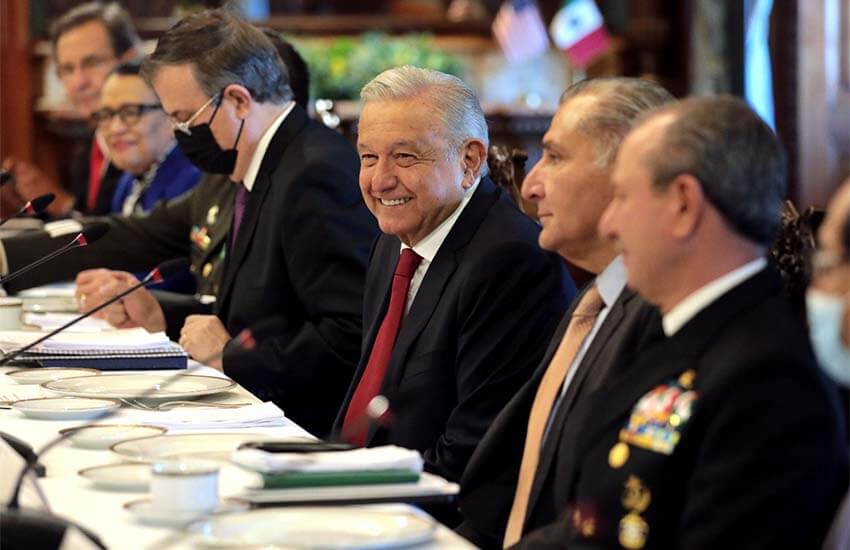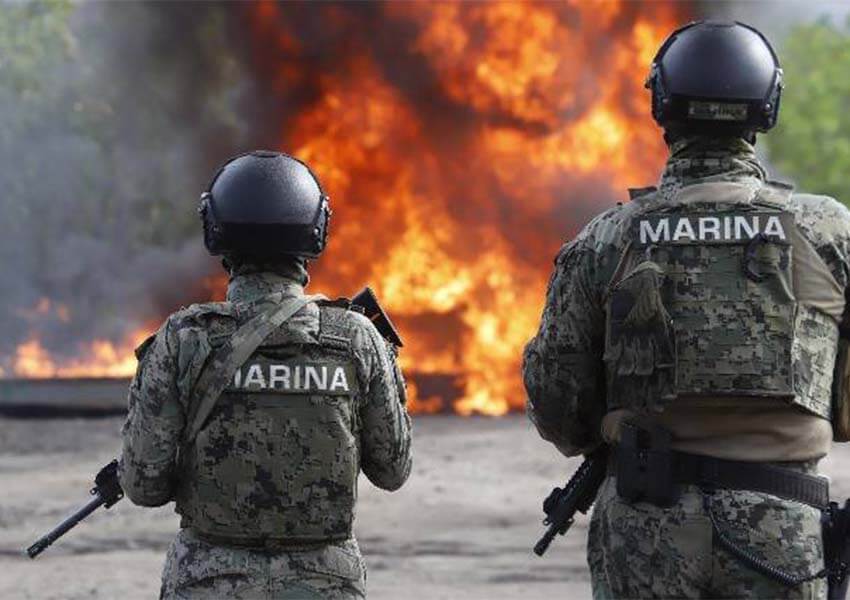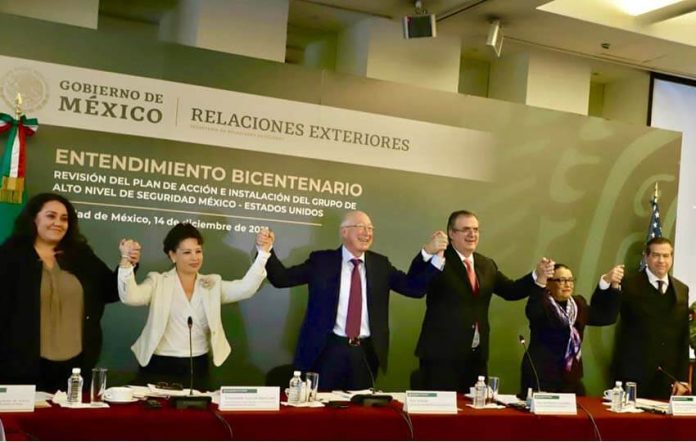A new security agreement between Mexico and the United States took effect Tuesday.
The security component of the bilateral “bicentennial framework for security, public health and safe communities,” which was announced in October, supersedes the 13-year-old Mérida Initiative, Foreign Minister Marcelo Ebrard said.
Speaking alongside United States Ambassador Ken Salazar and Security Minister Rosa Icela Rodríguez in Mexico City, Ebrard said it was a historic day.
“It’s … the beginning of operations of a new stage between Mexico and the United States in matters of security,” he said.
“The death certificate of the Mérida Initiative has already been issued; today we’re issuing the birth certificate of the bicentennial framework,” Ebrard said.

After high-level security talks in Mexico City on October 8, Mexico and the United States pledged in a joint statement to “move forward as partners to find solutions that are backed by justice, effective cooperation on law enforcement and a data-driven approach to develop effective strategies against organized crime.”
“Transnational organized crime has taken too many lives in both of our countries. We recognize that we have a responsibility to work together to achieve our shared goals of security and peace,” the two countries said.
“We need to address violence, reduce the capacity of and disrupt transnational criminal organizations and focus on prevention to create the conditions for a culture of peace while working side-by-side to address the root causes of crime.”
The creation of five binational working groups to address security issues was announced at the Tuesday press conference attended by Ebrard, Rodríguez, Salazar and other officials.
Through the new security pact, Mexico and the United States will work to combat violence, impunity, corruption, cyber crime, money laundering, the recruitment of vulnerable people by organized crime groups and the trafficking of weapons, drugs and humans, Rodríguez said.
“Both countries are obliged to work together, it’s a shared responsibility, that’s what the current context of transnational crime demands,” the security minister said. “These groups can’t be confronted unilaterally, the conviction to pursue them in order to bring them to justice is needed on both sides of the border.”

Ambassador Salazar acknowledged that the United States has a responsibility to help stem the flow of weapons across the border to Mexico. Ebrard said in September that reducing violence in Mexico will be very difficult if the United States doesn’t do more to stop the illegal flow of weapons, while in the October joint statement the two countries committed to “combat arms trafficking by coordinating bilaterally on detection and interdiction of firearms, considering new strategies and strengthening our collective efforts.”
“… [Stopping] the weapons that come here to Mexico from the United States is the responsibility of both nations, but we recognize, as President Biden has said, that these weapons are coming from the United States,” Salazar said.
He described the joint security initiative as an alliance based on mutual respect. Its entry into operation comes two weeks after a United States official revealed that Mexico had resumed issuing visas that allow U.S. Drug Enforcement Administration agents to work here after the issuing of such permits had stalled.
With reports from Reforma
